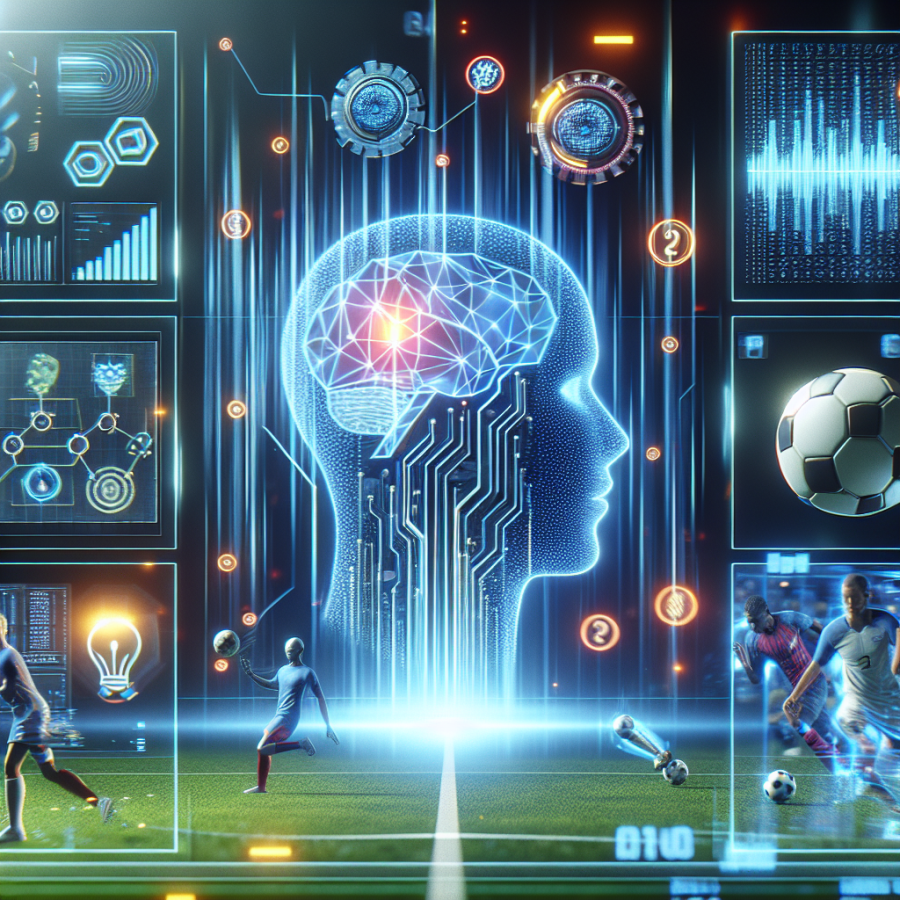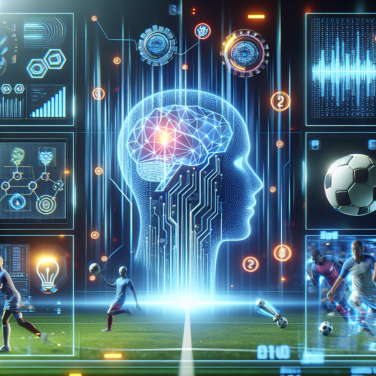Shaping Smarter Bets: How AI Technology is Transforming Gambling Dynamics
As AI continues to integrate into various facets of daily life, its influence on the gambling industry is particularly transformative. One key area where AI is making waves is the domain of sports betting. Traditional gambling dynamics are evolving, influenced heavily by smarter, data-driven decision-making enabled by artificial intelligence.
The heart of AI's transformative power in sports betting lies in its capacity for predictive analytics. By aggregating vast amounts of data from past games, player performance statistics, environmental conditions, and even social media sentiment, AI algorithms can identify patterns and trends that are imperceptible to the human eye. This allows for the development of sophisticated models capable of forecasting game outcomes with remarkable accuracy. For bookmakers and bettors alike, this is a game-changer.
Sportsbooks are leveraging AI not only to set odds with greater precision but also to personalize the betting experience for users. Through machine learning, they can analyze a bettor's individual preferences and betting history, offering tailored odds and wagers, thus increasing user engagement and customer loyalty. AI-driven platforms can also dynamically adjust the odds in real-time as new data comes in, such as player injuries or weather changes, ensuring the odds always reflect the most current scenario possible.
Moreover, the integration of AI in sports betting extends to risk management for gambling operators. With the technology's ability to process and analyze the betting behavior of countless individuals, algorithms can flag potential problem gambling patterns. This allows operators to intervene with appropriate responsible gaming measures, promoting a safer gambling environment.
The sophisticated analytical capabilities of AI have also given rise to algorithmic betting. Savvy bettors use AI systems to determine the most advantageous bets. In turn, these systems can execute bets automatically once specific criteria are met.
Another emerging trend powered by AI is the increasing reliance on in-play betting, which allows bettors to place wagers on events as they are happening. AI's real-time data processing and predictive analytics enable bettors to make quick decisions based on live game developments, which adds an entirely new dimension to sports gambling.
The edge AI provides in understanding player performance goes beyond raw statistics; it delves into biomechanics and behavior analysis. This level of insight adds depth to the profiling of teams and individual athletes, giving punters nuanced information that can inform their betting strategies.
Furthermore, the advent of chatbots and virtual assistants in online betting platforms has improved customer service.
Read also:
Top Crypto Earnings: Athletes Leading the Charge
Enhancing Predictive Analytics: AI's Game-Changer in Sports Betting
Predictive analytics has been groundbreaking in numerous industries, and the world of sports betting is no exception. Artificial Intelligence is fundamentally changing the game by providing insights that were previously inaccessible. This section will delve into the core ways AI is enhancing predictive analytics and why it has become the linchpin for those seeking to gain an edge in sports betting.
AI algorithms have the capacity to analyze vast quantities of data at speeds and depths that are humanly impossible. In sports betting, this capability translates to a more nuanced understanding of game dynamics, player performance, and potential outcomes. These algorithms process historical data, incorporating team statistics, player injuries, weather conditions, and even social media sentiments to predict results with remarkable accuracy. As a result, bettors equipped with AI-powered insights can make more informed decisions, increasing their chances of winning.
One of the significant advantages of AI in predictive analytics is real-time data processing. Traditional betting systems rely on static data, but AI systems can adjust odds and predictions as the game unfolds. This dynamic approach allows for in-play betting strategies that offer a thrilling dimension to the betting experience. It keeps the bettors engaged as they can change their bets based on live game developments.
The integration of machine learning is another critical aspect where AI overshadows traditional methods. Machine learning models improve over time, continually refining predictions as they are fed new data. This learning process means that the predictive accuracy of AI systems in sports betting is an ever-evolving feature, becoming more sophisticated with each game.
Moreover, AI's predictive analytics have opened the door to personalization in sports betting. By analyzing a bettor's history, preferences, and behaviors, AI can tailor betting options and suggestions to individual users. This customization not only enhances the user experience but also drives loyalty as bettors feel understood and catered to by their betting platforms.
With AI's influence, irregular betting patterns can also be detected more swiftly, enhancing the integrity of sports betting. These algorithms can flag potentially fraudulent activities, protect bettors, and preserve fair play in the industry. The ability to identify suspicious patterns quickly helps bookmakers and regulatory bodies act swiftly against match-fixing and other forms of corruption.
However, it's not just the bettors and bookmakers who are reaping the benefits; sports teams and coaches are also using AI to improve their strategies. By analyzing the predictive analytics provided by AI, teams can anticipate the tactics of their opponents, optimize their game plans, and adjust their training regimens accordingly.




